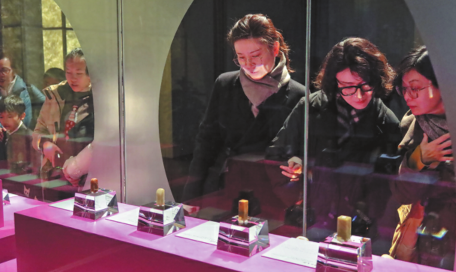

He had been a painter of note in Hunan, making money from portrait commissions but in Beijing, he was initially at a disadvantage because of his humble upbringing and background as a carpenter, as well as his lack of formal or institutional training.
The first two visits motivated Qi to invest in improving his art. In a newspaper interview in 1946, he explained why he made the third attempt to return to Beijing: "I felt that I had excelled. I didn't want to give up. Beijing was, ultimately, a hub of people of gift and insight, and there had to be someone who would recognize my art. … I was quite determined, there was no turning back for me."
His patience and perseverance finally gained him the attention of people of discernment, among them Chen Shizeng, an influential artist, and Mei Lanfang, the great Peking Opera performer.
Chen suggested that Qi leave his comfort zone — copying the styles, compositions and motifs of the great painters in ancient times — to explore his own path.
Qi took Chen's advice, and committed himself wholeheartedly to a course later described as, "reinventing himself in his later years".
His early experience in carpentry and wood relief making lent detail to his paintings.